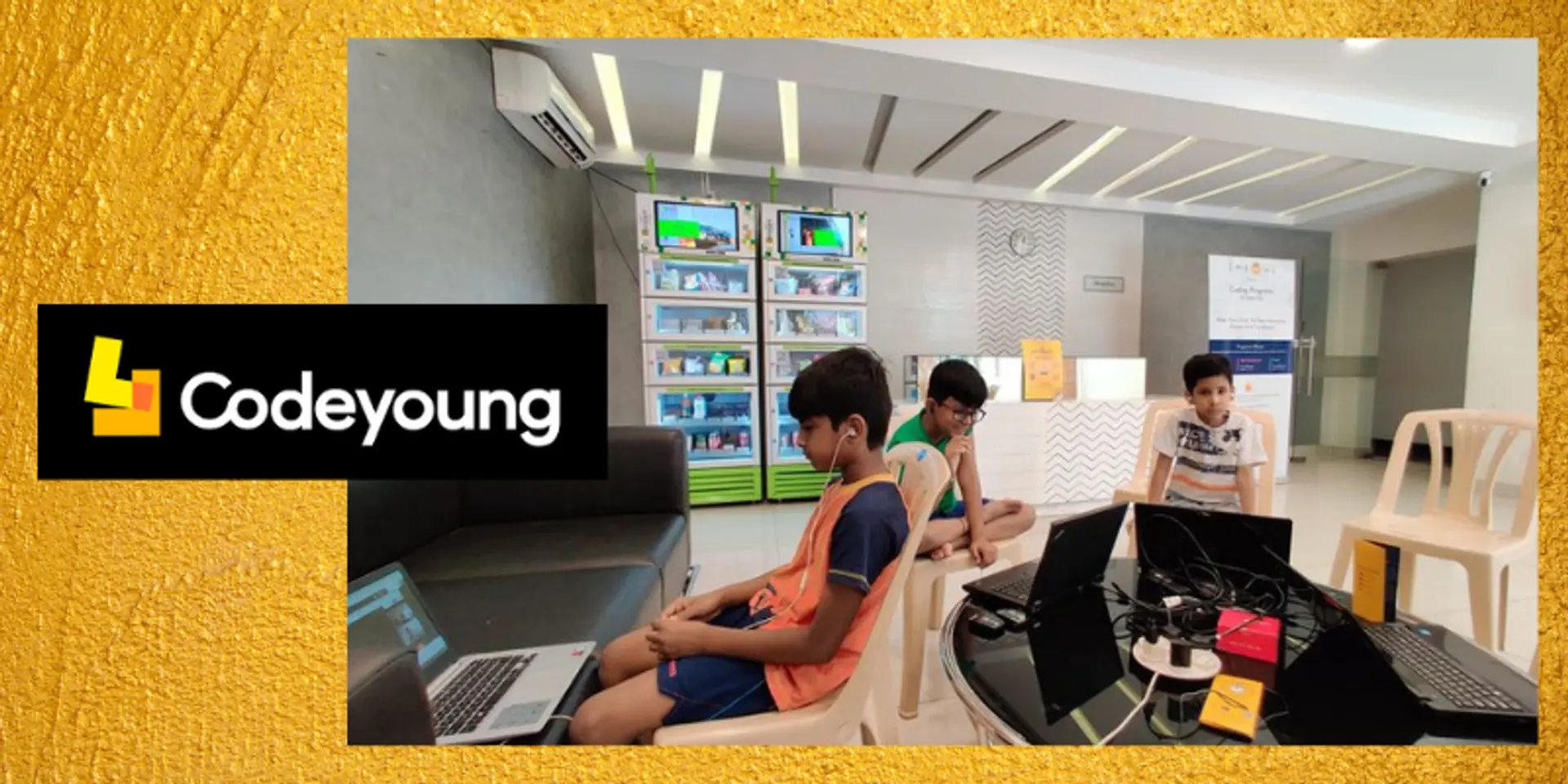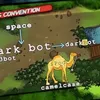This coding startup founded by IIT-D grads has enrolled K-12 students from five countries in a year
Bengaluru-based startup Codeyoung is riding the boom in live coding for kids. In just a year, it has held 40,000 classes for K-12 students, and raised funds from US-based Guild Capital.
IIT-Delhi alumni Shailendra Dhakad and Rupika Taneja volunteered in education for years before turning edtech entrepreneurs with .
Founded in December 2019, the Bengaluru-based startup offers live coding classes to K-12 students, and is riding a surge in the coding space.
The co-founders zeroed in on this segment because they believed that “coding is fun and there are no prerequisites” to learn it.
“It’s not like you have to learn Class 12 chemistry to qualify for coding classes. It’s for everyone, and it helps you in the real world,” Shailendra tells YourStory.
Codeyoung offers four programmes: Scratch, app development, web development, and Python for the age groups of 5-9, 9-14, and 14-16. Each course includes 48 classes, and costs Rs 19,999. The classes are held twice or thrice a week depending on the student’s preference.
Shailendra shares, “Our curriculum goes beyond drag-and-drop block-based programming and provides a real-world coding environment where students are taught industry-level languages like Java and Python. Our aim is to teach kids the fundamentals of logic and problem solving.”

Codeyoung Founders Shailendra Dhakad and Rupika Taneja
What the classes look like
Unlike many of its peers that conduct 1:1 coding classes, Codeyoung stresses on community and peer-to-peer learning. All its live classes are 1:3, which the founders believe, helps kids build better connections and understanding.
“We realised that 1:1 is not the ideal size for a coding class. Kids find it difficult to make connections with mentors when they are studying 1:1. So, our platform creates a collaborative learning environment,” explains the founder.
Codeyoung’s course content is complementary to the school curriculum, and the trainers work towards improving a child’s cognitive abilities, creative, and logical thinking.
At the end of the coding programme, K-12 students can build simple games, animations, and websites using Scratch.
The more advanced learners in Classes 11 and 12 are also introduced to the fundamentals of AI, ML, and robotics, and can develop responsive web pages and apps using Python. Codeyoung claims to have achieved an impressive Net Promoter Score (NPS) of 70+. (NPS is a commonly used benchmark in online learning.)

Codeyoung has held 40,000+ live classes in a year
Operations and growth plans
In just a year, Codeyoung claims to have enrolled over 15,000 students from five countries, including India, UAE, Australia, Malaysia, and the US.
Half of the startup’s user base comes from international markets. “Maximum traction, almost 70 percent, comes from students in Classes 4 to 7. That age group is showing good demand,” Shailendra reveals.
Codeyoung has conducted over 40,000 live classes so far, and has a trainer/teacher base of 120. It is adding “15 new teachers per month”.
The teachers come from varied backgrounds, including IITs and NIT.
“There are college students, engineering grads, school teachers who teach computers, and working mothers who may have discontinued their careers. We help them transition from offline to online learning,” says the founder.

Infographic: YS Design
Given the ongoing boom in coding, Codeyoung looks to enroll 100,000 students by the end of 2021. Without revealing specifics, the startup says that it has recorded a 20 percent revenue growth month on month since April.
It also plans to launch several new coding courses, interactive modules, assessments, and other engagement initiatives to fill the learning gaps in the school curriculum, and contribute to a child’s holistic development.
Codeyoung is also in talks with K-12 schools to help build their coding curriculum as mandated by the National Education Policy 2020.
The new educational reforms require schools to initiate coding classes for students from Class 6 onwards to build analytical thinking at a young age.
“Schools are still trying to understand what model they should adopt, and we plan to reach out to them to gain a bigger audience,” Shailendra reveals.
Funding and market opportunity
In September 2020, Codeyoung raised $400,000 in a seed round from US-based Guild Capital. It plans to use the funds to scale up in international markets, and strengthen its research, technology, and product teams.
Rupika Taneja, Co-founder, Codeyoung, stated,
“We started our journey by making programmes in coding as a way to impart necessary skills to school kids in an enjoyable and engaging way. The funding will help us in reaching out to more students and launching more programmes aligned with our vision.”
Apoorv Gautam, India Head and COO, Guild Capital, added, “We believe coding will be as important as any other language skill in the coming days, and introducing such courses at an early age will be crucial.”

Coding for kids is already a $14 billion market in India
Coding for kids received an enormous boost this year from primarily two events: NEP 2020, and BYJU’S buying out WhiteHat Jr for a whopping $300 million. Suddenly, coding became the hottest segment of edtech in India.
The coding for kids market is worth $14 billion already, as per industry estimates.
Codeyoung operates in this increasingly cluttered segment with the likes of Tekie, , , , Dcoder, Tinker Coders, CodeMonkey, LeapLearner, , , etc.
Even generalist edtech platforms like and are now offering live coding classes. Hence, differentiation is the USP.
Shailendra sums up Codeyoung’s vision by saying, “In edtech, there's not much focus on academics. We want to change that. Ultimately, we’re an education company; tech is just one part of it. And our biggest opportunity is that coding is becoming more formalised in India’s education system.”
Edited by Teja Lele







